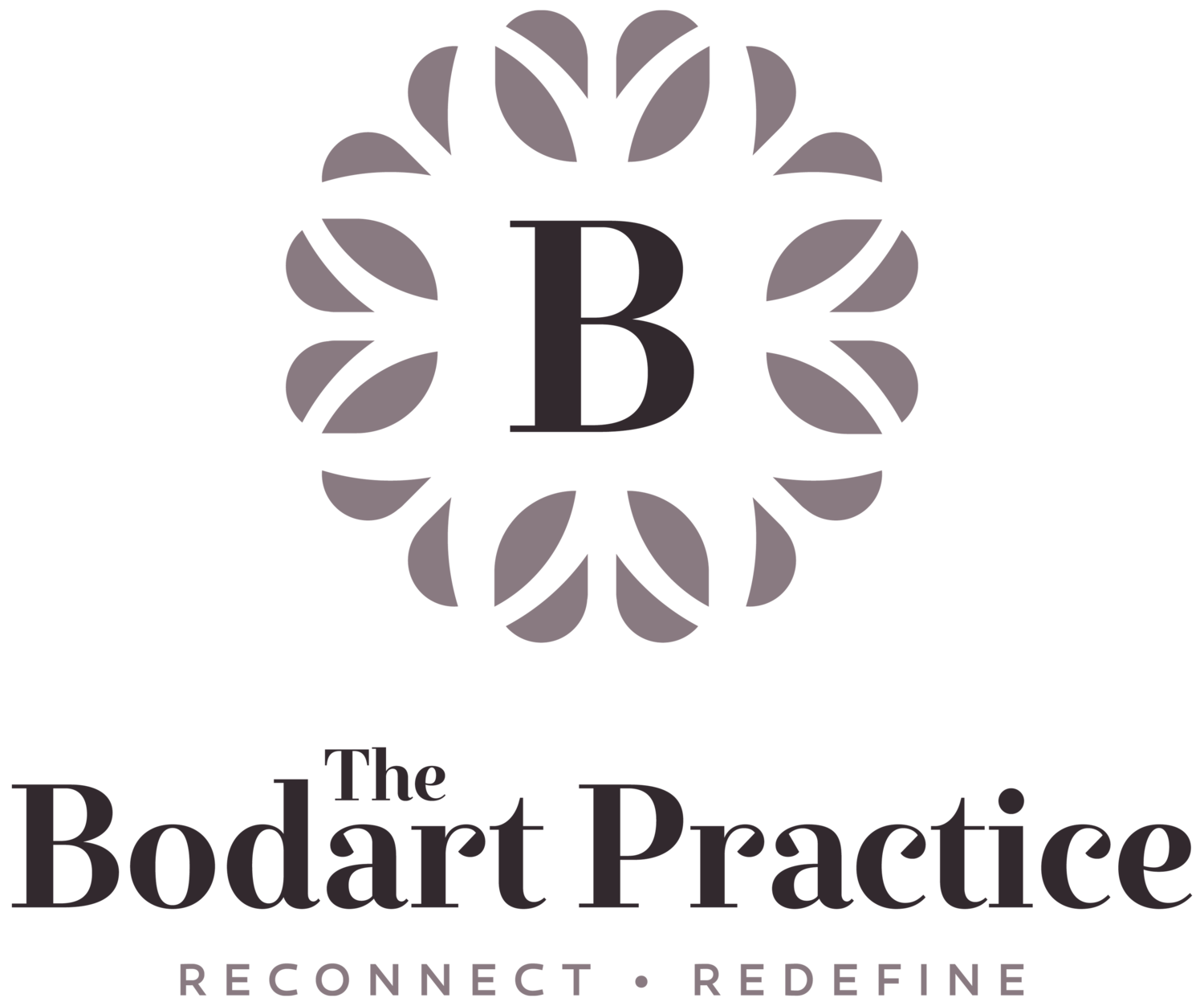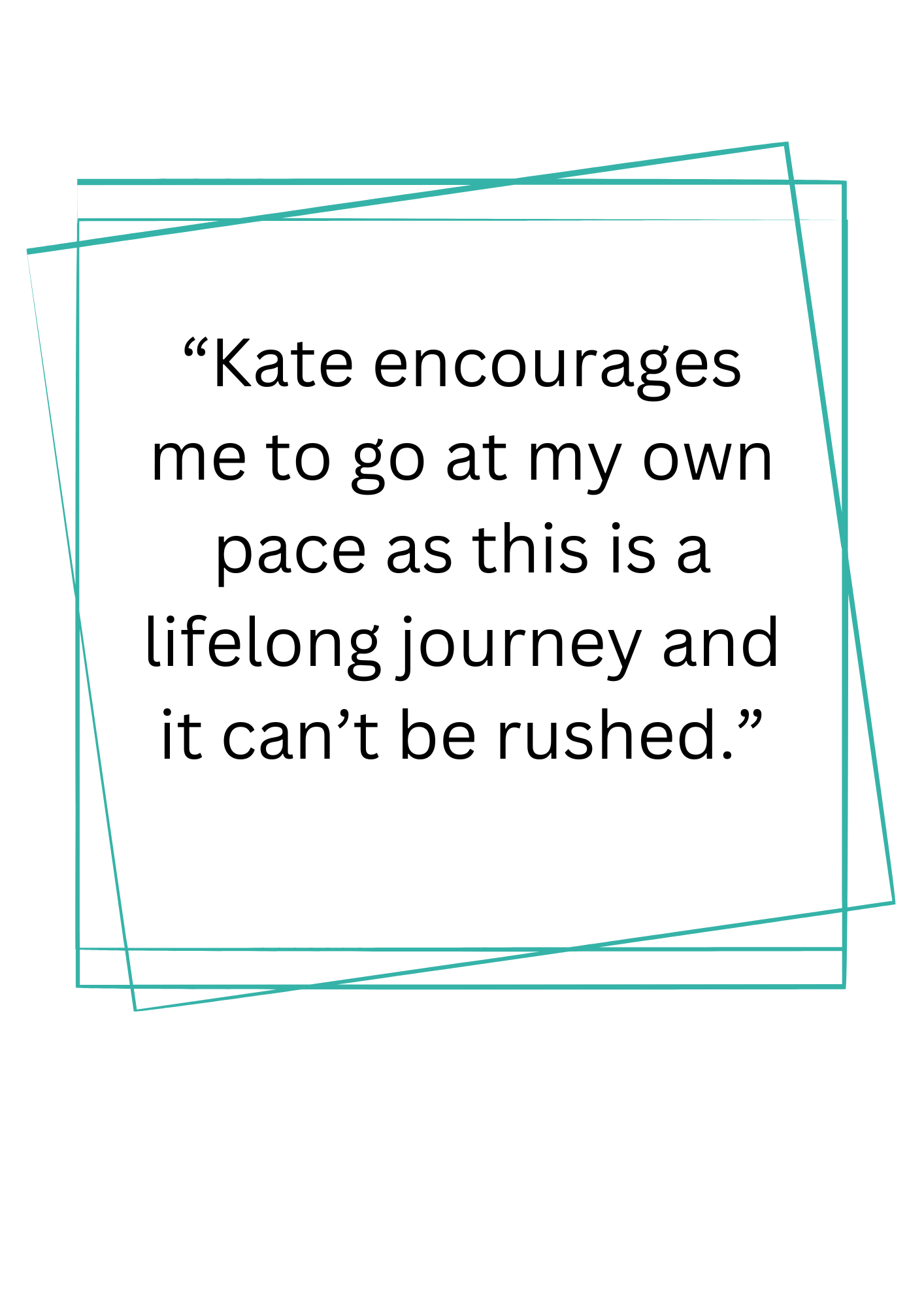MINDFULNESS THERAPY
MINDFULNESS PRACTICES
The British Association for Mindfulness Approaches explains that “Mindfulness helps us to move away from a thinking-based way of living into a more direct and immediate connection with everyday life and what's going on around us all, with kindness and curiosity.
By not worrying so much about the past or feeling so anxious about what the future may bring, we can experience more pleasure, joy and happiness, moment by moment. Over time, this can contribute to a sense of empowerment by recognising we can make more choices about how to live life more fully. This can support the development of better relationships, stability in life and an increased sense of wellbeing, whoever you are.”
Mindfulness-Based Cognitive Therapy (MBCT) individual sessions and courses at the Bodart Practice
We offer small group mindfulness courses in person and online as well as individual support either as a stand-alone therapy or alongside psychological therapies.
For clients interested in exploring the approach during 1:1 sessions we currently offer the following options:
* 3-session block as a very basic introduction to mindfulness approach
* 6-session block to offer brief introduction to mindfulness skills and concepts and/or to tackle a specific problem
* 8-session block to follow and fully cover the 8-week course material
MINDFULNESS-BASED COGNITIVE THERAPY (MBCT) INDIVIDUAL SESSIONS AND COURSES AT THE BODART PRACTICE
Mindfulness-Based Cognitive Therapy (MBCT) is suitable for anyone wishing to enhance their general physical and mental wellbeing. If you are experiencing stress, anxiety, recurrent depression or feel generally ‘dissatisfied’ with your life our MBCT sessions offer mindfulness skills training that can be supportive in responding better to the ‘ups and downs’ of everyday living.
During our sessions you will learn to deal more skilfully with the stresses and strains of daily living. Practising the skill of deliberately paying attention to what happens in mind and body we become more familiar with the workings of our own mind patterns and habits, some habits that may no longer be helpful for us. You will also learn to spot your own ‘warning signs’ early, before the stress or depression become too overwhelming. This way we can make plans for how best to respond, rather than react in our old familiar, but often unhelpful ways.
Each MBCT session offers a combination of guided mindfulness practices and cognitive psychology exercises to help us explore different aspects of the following themes:
· Mindfulness starts when we recognise the tendency to be an automatic pilot. With that we make a commitment to learning how best to step out of it and become aware of each moment while practisingpurposely moving attention around the body.
· Further focus on the body begins to show more clearly the ‘chatter of the mind’ and how this tends to control our reactions to everyday events.
· With greater awareness we begin to notice how busy and scattered the mind can often be. Learning to intentionally take the awareness to the breath, or body sensations, offers the possibility of being more focused and gathered.
· The mind is most scattered when it tries to cling to something and avoid/escape other things. Mindfulness offers a way to stay present, to view things from another place, to help take a wider perspective and relate differently to experience.
· Relating differently involves bringing to experience a sense of ‘allowing’ it to be just as it is, without judging it or trying to make it different. Such an attitude of acceptance is a major part of taking care of oneself and seeing more clearly what, if anything, needs to change.
· Negative moods and the thoughts that accompany them restrict our ability to relate differently to experience. It is liberating to realise that our thoughts are merely thoughts, even the ones that say they are not.
· There are some specific things that can be done when depression, anxiety or stress threatens. Taking a breathing space will come first, and then deciding what action, if any, to take. Each person has his or her unique warning signs and having an awareness of these, ‘spotting’ them early, will help in making plans for how best to respond to the turmoil of the mind, depressed mood etc, before it becomes too overwhelming.
· Maintaining a balance in life is helped by regular mindfulness practice. Good intentions can be strengthened by linking such intentions to a positive reason for taking care of oneself.
In our sessions, we introduce different ways to be mindful. By letting yourself try all the mindfulness practices, you may discover the ones that are most useful for you. Regular sessions also provide the opportunity for you to practise being kinder and gentler to yourself. You will also learn gentle ways to face difficulties, so that it feels supportive and safe as all our session content is presented and approached from a trauma-sensitive/trauma-informed perspective.
Clinical studies of hundreds of patients have shown that MBCT increased participants’ wellbeing. Here are some things that participants in the past have reported:
• I became aware of the workings of my mind.
• I learned to stay steady, but also to stand back a little.
• I could recognize that I have choices other than slipping back into old patterns.
• I learned to take a kinder, more gentle attitude toward myself.
• I learned to recognize warning signals and take helpful action.
• I learned how to put less effort into “fixing” things.
• I learned how to focus on the here and now.
Please note that our MBCT sessions are not being offered as a treatment for any specific physical or psychological conditions and are designed to complement your ongoing therapy. They are not suitable for anyone who is currently experiencing very severe problems in these areas. During our initial consultation session, you will be asked some questions related to your general well-being and state of mind to ensure the approach is suitable for you at this time.
KATE WOJCICKA BIO
Kate’s training is in Mindfulness-Based Cognitive Therapy (MBCT), an approach originally designed (upon request from the NHS) by Mark Williams, Zindel Segal and John Teasdale to support clients suffering from clinical depression (and is currently included in NICE guidelines as treatment option for depression). Since it was developed the approach has transformed and is now more often being offered for a wide spectrum of mild to moderate mental health challenges.
She has also completed Trauma-Sensitive Mindfulness training with David Treleaven as well as The Complexities of Complex Trauma Training from International Society for the Study of Trauma and Dissociation. This means that all her session content is presented and approached from a trauma-sensitive/trauma-informed perspective. She aims to plan her sessions in a way that they are complementary to the therapy processes already offered.







